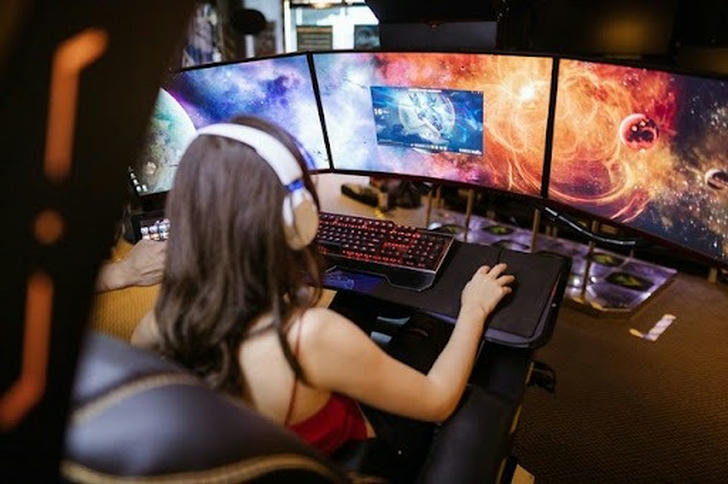A Comprehensive Guide to Game Development Courses in 2025
The gaming industry is one of the fastest-growing entertainment sectors worldwide, offering endless opportunities for aspiring game developers. Whether you’re interested in designing immersive worlds, coding innovative gameplay mechanics, or creating stunning visual effects, a game development course can help you build the skills necessary to succeed. This article explores various game development courses, their curriculum, career prospects, and success stories of professionals who turned their passion for gaming into a thriving career.

Why Choose a Game Development Course?
Game development combines creativity, technical skills, and storytelling to produce interactive digital experiences. A structured course provides in-depth knowledge of game engines, programming languages, design principles, and industry-standard tools.
Types of Game Development Courses
There are multiple paths to learning game development, from short-term certifications to full-fledged degree programs.
1. Certificate and Diploma Courses
These are ideal for beginners or professionals looking to specialize in a specific area of game development.
- Duration: 6 months to 1 year
- Best For: Hobbyists, indie developers, or those looking for quick skill upgrades
2. Bachelor’s Degree in Game Development
A comprehensive undergraduate program covering all aspects of game design and development.
- Duration: 3-4 years
- Best For: Aspiring game designers, programmers, and artists looking for a structured education
3. Master’s Degree in Game Development
An advanced program focusing on specialized areas such as artificial intelligence (AI) in gaming, virtual reality (VR), and game physics.
- Duration: 1-2 years
- Best For: Industry professionals seeking career advancement or research opportunities
4. Online Game Development Courses
With the rise of e-learning platforms, online courses provide flexible learning options.
- Duration: Varies (a few weeks to a year)
- Best For: Self-paced learners and professionals seeking to upskill
Key Subjects Covered in Game Development Courses
Regardless of the program type, most game development courses include fundamental and advanced topics such as:
- Game Design Principles – Understanding mechanics, dynamics, and aesthetics
- Programming Languages – C++, C#, Python, and JavaScript
- Game Engines – Hands-on experience with Unity, Unreal Engine, and Godot
- 3D Modeling and Animation – Using Blender, Maya, or 3ds Max to create assets
- AI in Games – Implementing intelligent NPC behavior
- Virtual Reality and Augmented Reality – Developing immersive experiences
- Game Monetization Strategies – Understanding -to-play and premium models
Skills Required to Succeed in Game Development
Becoming a successful game developer requires a mix of technical and creative skills:
- Programming Proficiency – Strong coding skills for game mechanics and AI implementation.
- Creativity and Storytelling – Designing engaging narratives and interactive experiences.
- Mathematical and Logical Thinking – Understanding physics, algorithms, and game mechanics.
- Collaboration and Teamwork – Working efficiently with designers, artists, and testers.
- Problem-Solving Abilities – Debugging and optimizing game performance.
Career Opportunities in Game Development
Graduates of game development courses can pursue various roles in the gaming industry, including:
- Game Designer – Conceptualizing and planning gameplay mechanics.
- Game Programmer – Writing code to implement game functionality.
- 3D Artist/Animator – Creating characters, environments, and visual effects.
- Level Designer – Building immersive game levels and maps.
- Game Tester (Quality Assurance) – Ensuring games run smoothly and are of bugs.
- Virtual Reality Developer – Creating VR-based experiences for gaming and simulation.
Success Stories: Real-Life Examples of Game Development Graduates
1. Alex Thompson – From Student to Indie Game Studio Founder
Alex enrolled in an online game development course while studying computer science. After learning Unity and C#, he developed his own indie game, which gained popularity on Steam. Today, Alex runs his own game studio and has released multiple successful titles.
2. Maria Lopez – Game Artist at a Leading AAA Studio
Maria pursued a bachelor’s degree in Game Art and Animation. Her 3D modeling skills landed her a job at a major game development company, where she now works on high-budget AAA games.
3. Jake Simmons – VR Developer for Medical Simulations
Jake combined his passion for gaming with his interest in healthcare. After completing a VR development course, he now designs medical simulation software used for training doctors and surgeons.
Certifications and Industry Recognition
While not always required, certifications can boost your credibility as a game developer. Some popular certifications include:
- Unity Certified Developer
- Unreal Engine Certification
- Autodesk Maya/Blender Certification
- Google AR/VR Certification
Conclusion
A game development course is an excellent investment for anyone passionate about creating interactive digital experiences. Whether you choose a short-term certificate, an undergraduate program, or an online course, the knowledge and skills you gain can open doors to exciting career opportunities in the gaming industry. The success stories of professionals like Alex, Maria, and Jake prove that with dedication and the right education, anyone can turn their love for gaming into a thriving career.
